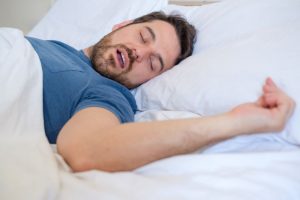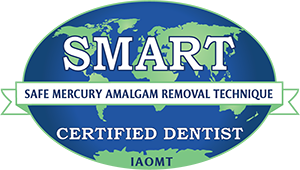Are Snoring and Sleep Apnea the Same Thing?
May 24, 2023

You might occasionally hear the terms “sleep apnea” and “snoring” used interchangeably. But is that accurate? Are snoring and sleep apnea the same thing? No, they are not. Understanding the difference can equip you to take better care of your overall health. Let’s talk about what they are and how you can tell them apart.
What Is Snoring?
Snoring occurs when tissues in the throat vibrate as air pushes past them. The vibration can create a range of noises, from a soft and subtle sound to very loud sounds that can be heard several rooms away.
For individuals without sleep apnea, snoring is usually nothing more than an occasional annoyance. It might happen when your nasal passages are congested due to allergies or a cold or when you indulge in a glass of wine too close to bedtime. Snoring of this sort is not typically a major cause for concern.
What Is Sleep Apnea?
Obstructive sleep apnea (OSA) is a disorder that causes frequent pauses in breathing throughout the night. The pauses, known as apneas, occur because tissues in the throat collapse and completely the block the flow of air. OSA is a serious medical condition that deprives its victims of high-quality rest and can lead to numerous health complications, including heart problems, an increased risk of dementia, depression, and more.
The tissues that cause the apneas are the same ones that vibrate and lead to snoring. Therefore, it is very common for individuals with OSA to snore loudly and frequently.
Should You Be Concerned about Your Snoring?
The best way to tell if your snoring is an indication of sleep apnea is to undergo a sleep test. During the test, sophisticated equipment will monitor you while you sleep in order to determine if you have any sleep disorders.
How can you tell if a sleep test would be a good idea for you? Here are some indications that your snoring might point to OSA:
- Your snoring is loud and frequent.
- Your partner has observed that you sometimes stop breathing during the night, or you sometimes wake up gasping for air.
- You are often exhausted despite spending 7 – 8 hours asleep.
- You have noticed other signs and symptoms of sleep apnea, such as mood swings, difficulty concentrating, and frequent nighttime urination.
- You have one or more significant risk factors for OSA, such as obesity, a deviated septum, or a poorly developed jaw.
If you are diagnosed with OSA, there is no need to despair. Dr. Thomas offers a number of different treatments that can reduce or eliminate your symptoms so you can enjoy the quiet, rejuvenating sleep you deserve.
Snoring and sleep apnea are not the same thing, but they are often connected. Monitor the quality of your sleep so you can promptly seek professional care if necessary.
Meet Dr. Thomas
Dr. Preetha Thomas is an experienced holistic dentist in Southlake. She provides multiple treatments that can help to address OSA, including oral appliance therapy, NightLase laser treatment, and functional orthodontics. If you are concerned about the quality of your sleep, she would be pleased to consult with you. Contact Enclave Dental at 817-912-1218.
No Comments
No comments yet.
RSS feed for comments on this post.
Sorry, the comment form is closed at this time.




